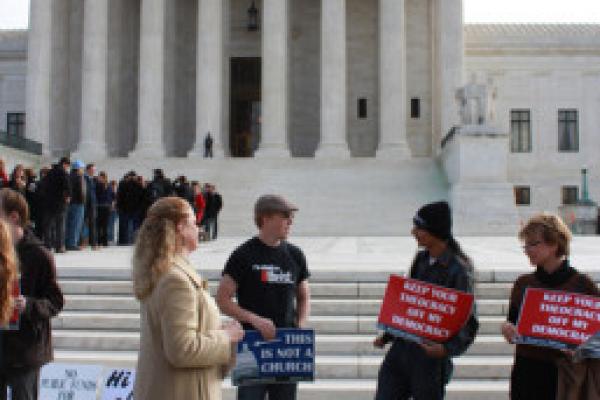May 6, 2014
On Monday, the U.S. Supreme Court ruled that a city, town, or county could open its regular meetings with a sectarian (that is, Christian) prayer without violating the First Amendment’s Establishment Clause. Not unexpectedly, the much-anticipated Town of Greece v. Galloway decision split the court 5-4. It is, for that and other reasons, a less than satisfying decision.
The essence of the opinion is that if ministers are asked to give an invocation to establish a serious and contemplative tone at official functions (whether a congressional session or town board meeting), it does not matter if prayers are consistently Christian (or Jewish or Muslim). So long as the government does not control the prayers’ content, is nondiscriminatory in choosing who may pray (even atheists would have an equal opportunity to open meetings), and does not mandate that people attend or participate in prayers or penalize those who do not, the prayers may continue.
Read the Full Article

Already a subscriber? Login
